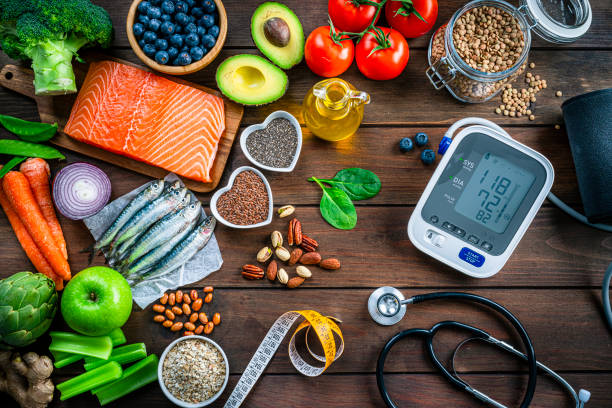A Guide To Hypertension Symptoms

The condition of high blood pressure, also known as hypertension, is so prevalent that it's often called the "silent murderer." It doesn't usually cause symptoms, so you could be suffering from been suffering for a long time without even realizing that you have it. That's why it's important to get regular checks and monitor your blood pressure from home.
This guideline updates NICE guidance CG127 and provides a number of new recommendations. Included are:
1. Diarrhea
The majority of cases of diarrhea are mild lasting only several days. If the diarrhea is extreme but the loss of fluids could make you dehydrated and lead to hypotension.
The heart is more active in the event of hypotension and this can cause damage to your arteries. It can cause an intermittent blockage of blood supply to your brain. It is referred to as stroke or transient ischemic attack (TIA). You can obtain more info on hypertension by visiting https://www.mojacukrzyca.org/?a=text&id=4673&des=nadcisnienie-tetnicze-i-cukrzyca-co-warto-wiedziec website.
Take plenty of fluids in order in order to manage this issue. This includes beverages like juices, water and soft drinks that do not contain caffeine, herbal teas, and Pedialyte. The doctor could also prescribe the medicine LOPERamide, which is available under the brand name Imodium in order to ease your symptoms. An osmoidoscopy and stool test may be performed to determine the exact cause of diarrhea. The doctor will ask you regarding recent changes in the medication you take and your diet.
2. Headache
Headaches are often a symptoms of hypertension. It occurs when blood vessels get larger and press against the brain's cells. The discomfort can be mild to disabling and can be triggered by a certain food or drink, stress, or even sleep deprivation.
You can identify your triggers through keeping a journal of your headache. Discuss with your physician any lifestyle changes you can implement, such as having more rest and staying away from certain drinks or foods.
An examination by a doctor and a lab testing can identify issues that could cause headaches. As an example, examining the fluid that surrounds the brain and spinal cord can find infections, brain tumors, or even a condition called hydrocephalus (an extensive buildup of cerebrospinal fluid in the skull, which creates a pressure on nerves that causes headaches). You might have to undergo an imaging test such as CT or MRI to determine the cause of certain conditions that cause headaches.
3. Heartburn
It is a burning sensation which begins in the middle of your chest and spreads to your throat. The cause is when stomach acid leaks out into the esophagus, irritating the unprotected tissue. Heartburn is usually caused by hot, rich or spicy foods. Heartburn can be caused by some medications or even the pregnancy.
The lower esophageal muscle connects your esophagus to your stomach. It is responsible for transferring fluids and food particles from your mouth to your stomach. The lower esophageal sphincter is an organ that is designed to prevent stomach contents from re-entering the throat. However, it may get weaker or tighten up excessively when you take large amounts of antacids, consume large portions of food, or lie down after eating.
Some medications (including those for hypertension) could result in the LES to contract in an inappropriate manner, increasing the frequency of stomach contents entering your stomach. It can make your discomfort from heartburn get worse and persist for a longer time.
4. Chest pain
When the arteries that carry blood to your heart are constricted by high blood pressure, it may result in chest discomfort. The pain could be acute and stinging, or it might be painful and dull. It could also indicate an attack on the heart or another serious cardiovascular problem.
Chest pain can be caused by heartburn that is unrelated to heart. It can be similar to burning in your esophagus and can radiate into the center of your chest.
It is important to check your blood pressure daily in case you are suffering from hypertension. It is possible to spot issues prior to they get serious by keeping a blood pressure log or by taking it to an appointment with your doctor. The doctor may suggest modifications to your lifestyle that will help manage and even reverse hypertension.
5. Trouble breathing
Together both the lungs and the heart carry oxygen around the body and remove carbon dioxide. If something alters how they function, it may cause you to feel short breath.
Most people have difficulty breathing during strenuous exercises, at high altitudes or obese. But sudden and extreme shortness of breath could be an indication of a serious health problem.
If you experience chest pain, swelling, fainting or changes to the color of the skin, take immediate medical care. It could be an indication of certain ailments: